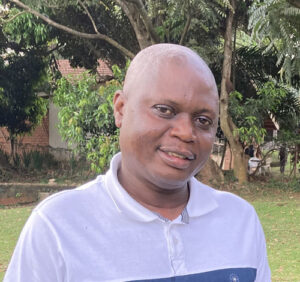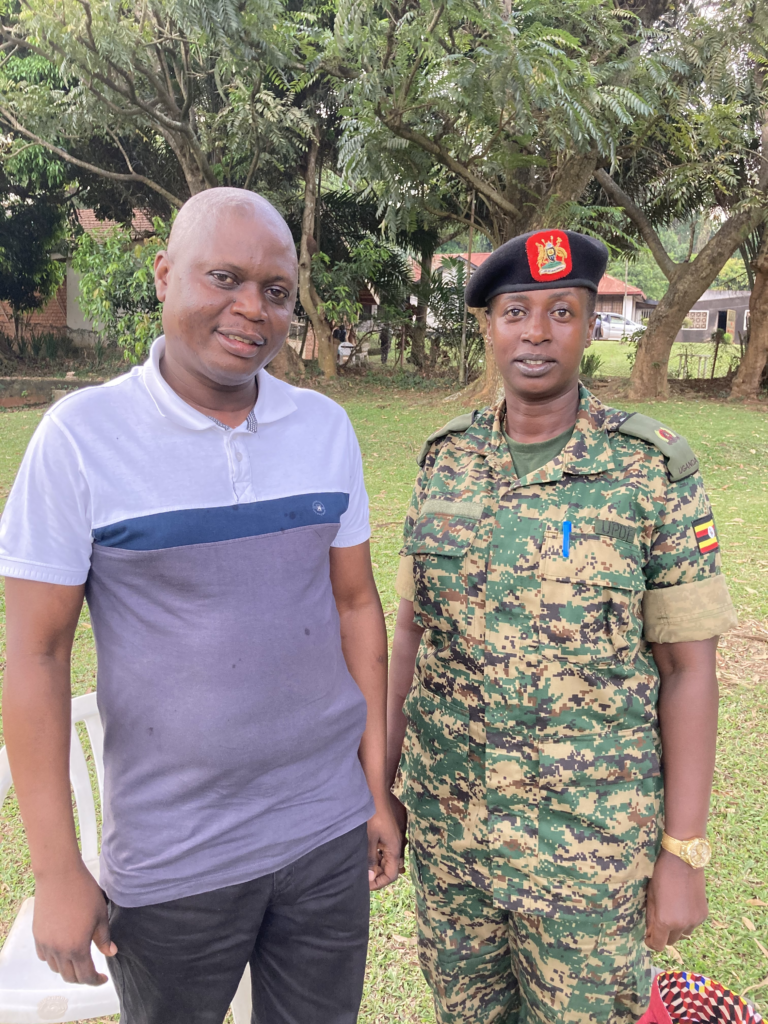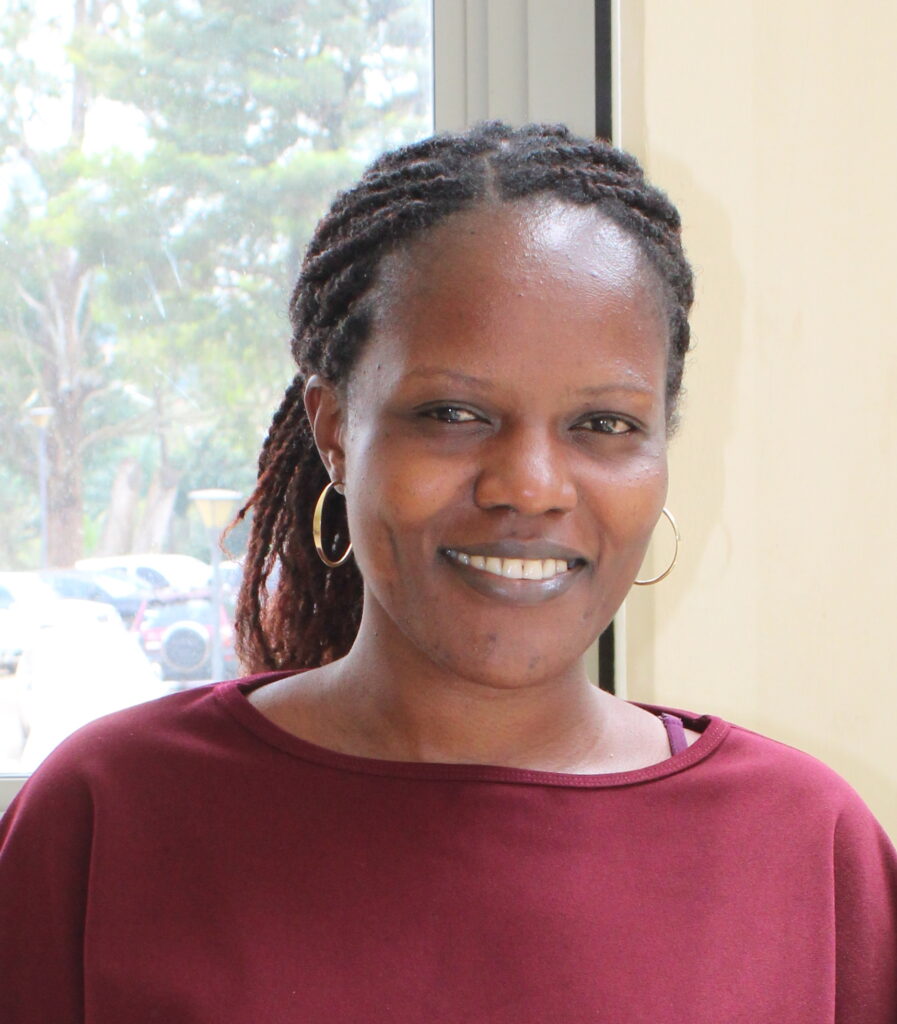Quick Chat with Col. Cassette Wamundu, UPDF’s D/HIV.

Col. Cassette Wamundu
- April 8, 2021
Q: How important is HIV to the military?
Col. Cassette: HIV is very important, it is one of the key challenges for the military. To highlight this, there was a defense review that was done, which reviewed all security scenarios in the country. And it predicted three things: 1) a peaceful Uganda; 2) a chaotic Uganda, and another one where we have an intermediate scenario – where we have some bit of peace and episodes of violence and insecurity. And in all those scenarios HIV had an interplay in all of them – it was a threat. Secondly, you might remember one of the reasons the President put around when he was looking for, I don’t know if that’s what they call, the second term in 2000. The reason he had issues of succession because some of the people he had mentored had fallen to HIV. So, it shows you that it [HIV] was taking quality people, and those in the military. That is according to me. Then of course he also said that at one point about 1,000 soldiers were dying and most of them were dying of HIV. We have never had a scenario where we lose a thousand soldiers in a year. So that’s how big the problem was.
Q: Tell us abit about the history of HIV programming in the military
Col. Cassette: HIV in the military started as a very small program. It’s was set up because nobody knew much what to do exactly. That is going back to around 1987, 1989, 1990. It started as a small program attached to the military hospital in Mbuya, just for dissemination of information and creating awareness that “there is this disease”. And we had to emphasize that it is a disease because people were associating it with witchcraft. And “this is how it is spread”. So basically, that was what the program was about. So later on, around 1989 to 1990 it started offering drug trials, mostly from China. It grew up to become a public health department with capacity to now look at other diseases and it was managed by one medical officer. At the time it was Dr Ezra Muhumuza who was very committed to his work. He was the guy who trained some of us, we were very young people, “kadogos”. So, it started offering some of those drugs and by then defense was also beginning to explore and learn more science. That’s partly how they started the Joint Clinical Research Center (JCRC); it was an idea initiated by the Ministry of Defense. Other actors like Makerere University came in later.
Q: What other key milestones can you highlight?
Col. Cassette: The turning point in real HIV work came in around 1990. That’s during the first health project. The first health project scaled HIV programming to all the four divisions as early as 1990 and every division had an AIDS control center. They had only one clinic in Mbuya [military hospital] but those had satellites. So the doctors in Mbuya would travel to the satellites and attend to patients, but also the satellites would move around creating awareness in the communities. So, talking about milestones. We were the first group, I think even the first military, to launch what we call the educational-entertainment. We were the ones who imported the first film vans. In fact, even before the Ministry of Health. We remodeled our [vehicle] Santana to make it fit for purpose and put something on top but we had this huge equipment, state of the art equipment, of those days. So, we would go around; you know soldiers were young, we were still a young population. And we would entice them, you know the messages by then were very stigmatizing, but we could just play the films and the music and then slowly we got the message home. I think we pioneered that.
We spread around to all the divisions and eventually the program grew until it became an independent AIDS control program. Now it’s a full-fledged program with a director who is currently the Honorable Evarlyne Asiimwe [also Army MP]. And it’s a formal structure within the military and most militaries don’t have that in their structures. And being a director, she attends other forums – she is a member of Staff and Command, a member of Defense Council and she also has voting rights in that Defense Council. And of course, if you go to these branches of prevention, care and treatment (PCT) with all these cross-cutting programs; just like Ministry of Health we have a replica of those programs. The intention is not to deviate from the national program but to make sure that we can reach our people.
Q: And now fast forward to today. How is HIV care, prevention and treatment (PCT) being delivered in the military?
Col. Cassette: A lot is being done. For instance, when we concentrated on prevention alone, all these prevention initiatives are run concurrently. But we now don’t do that one-sided huge awareness because science has proved it not to support behavioral change. So, we are now engaged in small dialogue groups in what we call the peer model, and every unit has discussions. People have been organized in small groups which are now very functional. Just like we are seated here. And the program is very structured whereby they people get certain ear-marked days when they meet and talk about HIV. It’s now very structured and they are guided whereby they have specific issues they talk about, which are in a modular format. I think we are running 15 modules for that group across a period of time. So today when we meet we are going to talk about this. And the groups are not formed structurally; people form them according to the way they feel they relate. Like for soldiers – the unmarried soldiers, there are some factors which bring them together, or it could be soldiers from a particular intake might say “for us we want to discuss this as an intake” and they are arranged according to that. There are some factors that bring them together. Maybe twenty or fifteen people. So there, the program captures them and acts as a facilitator and allows someone to come and take them on.
HIV is mainstreamed in almost everything we do – it is talked about in meetings with senior officials and almost everywhere. There is a directive that they should talk about it in the meetings, and at parade with all the soldiers. Almost everyday but at the very least every week at parade the commander comes and talks about HIV issues, accessibility of drugs, talks about risky behavior and so on. People bring up their experiences and challenges like those of accessing drugs, domestics violence – maybe that one which happens because of issue of disclosure; or others complaining that some are loving the wives of others. Commanders and even fellow soldiers will encourage and tell them “it’s good if you are positive to talk to your partner”. And these issues are discussed openly in parades, every Monday in parades. People ask questions, any questions they might have about HIV they are encouraged to ask. Actually, soldiers they are a liberated group, they are not boxed in and they talk very easily and freely about sex. It’s not a big deal. And we have seen this help them a lot. At parade and in their small groups we continue to sensitize and remind them that the disease is real and that they should be safe; also they should protect their loved ones. And it has worked very well for us – especially this Command-Driven approach.
Q: How exactly does the Command-Driven model work?
Col. Cassette: First, Command-Driven came about as a technical recommendation based on real service delivery experiences. Real experiences and challenges which the technocrats observed as they tried to offer services to soldiers. The technocrats, the doctors and health workers, were realizing they were not having the positive impact they had hoped to have at the beginning. Because for you to meet soldiers, you need to get the permission of the commander to talk to them. That is for them to even believe that what you are telling them is correct. They mostly trust their commander. You know the commander is like their elder. Soldiers believe that their life is in the hands of their commanders. He is the one that strategizes during war – if you have a bad commander, you are finished. The commander keeps them safe, instructs and guides them at all times. So they believe in their commander. So, when the technocrats understood this concept they advocated for the involvement of their commanders in order to increase understanding, uptake and positive impact of HIV services. So this Command-Driven concept, you could say actually, came from the technocrats who became aware of their gaps in mobilizing. We needed the commanders to take part. Because when you send a message that you need to meet a certain number of people, it’s the commander of that unit to take this on.
But also, the leadership of the President. He is the Commander-in-Chief and our commanders look up to him a lot. He is a model of the military commanders. And as you know he was very instrumental in the fight against HIV/AIDS right from the start. Now because all the commanders look up to him they also starting copying him, but they were not enlightened as he is. So they had to be empowered with facts on which to talk about when it comes to HIV/AIDS. The commanders were trained almost like training of trainers; and they made a very big contribution, they started taking lead in dissemination of information. Others started taking lead in HIV testing. Others came out openly to talk about medication and openly say “for me I am on drugs”. They disclosed and that had a very big positive impact. But they also became more attentive to organize transport to pick the drugs and giving people permission to go pick their drugs. So, the commander leadership cuts across. Because almost the entire life of soldier rotates around their commander: he is the person they confide in, even when they are planning to go get married, he is the person they confide in. He is really their parent. When they are fighting with their spouses, they will tell their commander. It is a powerful tool which I am very happy the technocrats also recognized and now we are making great progress in HIV work because of it.
What is the one thing that makes the military stand out in service delivery?
Col. Cassette: The level of organization. You know we talked about the Command leadership; then there is what we call the Chain of Command.
I didn’t know they were different
Col. Cassette: Command is a commander doing things. But Chain of Command, there is leadership from the top. This leadership is very well defined from the top to the last man. No soldier is not accounted for. Because for civilians in the village, even if they know their Local Council Chairman, he can still do his own things. But for a solider the chain of command reaches you, and takes total responsibility for you. Then there is something we normally don’t brag about; we have a lot of patriotism. Love for service. You find a very high level of commitment. Infact, our healthworkers get less than what the civilian health workers are paid. But that inherent spirit of service keeps them going. You know soldiers even where you hear their songs, you will understand they know they are there to serve their people. But that is not what is talked about. People think soldiers are there to kill the enemies. But soldiers in doing that they are being patriotic. You see there are songs like “I sleep outside to protect my mother land. Our work is hard, I eat little because of my mother land. Am hit by rain because of my motherland” These songs are in Kiswahili and soldiers sing them all the time, because they believe in them. And If you study the history of military: for most of them that oath they take, to protect their country, they bond with it. But most importantly the organization chain of command – it makes work easy.
Then the discipline, you hold yourself accountable in case you don’t do what you are supposed to do. Let’s say you are supposed to be on duty somewhere you can’t just leave. There is a way I think the training itself instills that’s discipline in you. When you are deployed, you are deployed. If you are a healthworker in a health facility, you cannot even start thinking of being absent on any day. It’s almost inbuilt in you. The discipline becomes part of you. It’s a culture of its own.
Civilian health facilities can certainly learn from that. What other things do you think are transferable from your world to health service delivery?
Col. Cassette: Incidentally when I listened to how these health workers train, they are trained like the military. But when they go out there, I don’t know what happens in the communities, because they are structured like military. Even their rankings, even the way they respect their elders. So, discipline is part of them, but I think the element of Command and Control is missing to some extent. For us it is a success factor. I talked about Chain of Command but there is Command and Control. Those health facilities probably there is limited command and control. leadership. I don’t know how health leadership like DHOs are supervised. You know long ago we had those regionals but with this decentralization and in such settings, it can be difficult to effectively enforce the professional command and control.
You get to see some of these things when we would go to districts for the Army Week. You would go to a Health Centre IV and you find it closed with a padlock. No one is there, it’s already after Christmas. People are there waiting to receive the services, but none of the healthworkers are there. I don’t know if they assume that when its Christmas people don’t get sick. You try to call the DHO, he tells you “I am not around, let me give you the phone number of the In-Charge”. The in-Charge says “Hah, I will come on this date” But the people are there needing services. Such a thing can never happen in our setting. The commander and Chain of Command will make sure it doesn’t happen, but also the soldiers know they are there to serve.
Further information on how the “Command-Driven” approach has been leveraged to increase HIV prevention, care and treatment (PCT) outcomes in the military can be found on the SUPREME project page; e.g. on increasing VMMC coverage, managing adverse events or frontline implementation experiences.
About the Interview
Col. Cassette Wamundu was the Director of UPDF’s Directorate of HIV (D/HIV) until 2020. He is also a professional who has been actively involved in HIV programming work.



